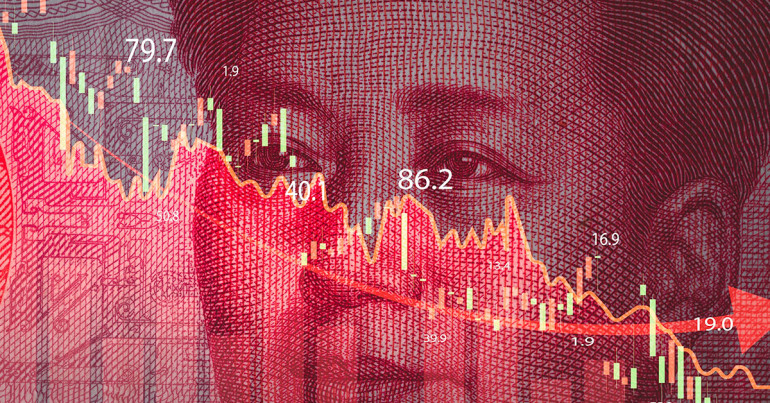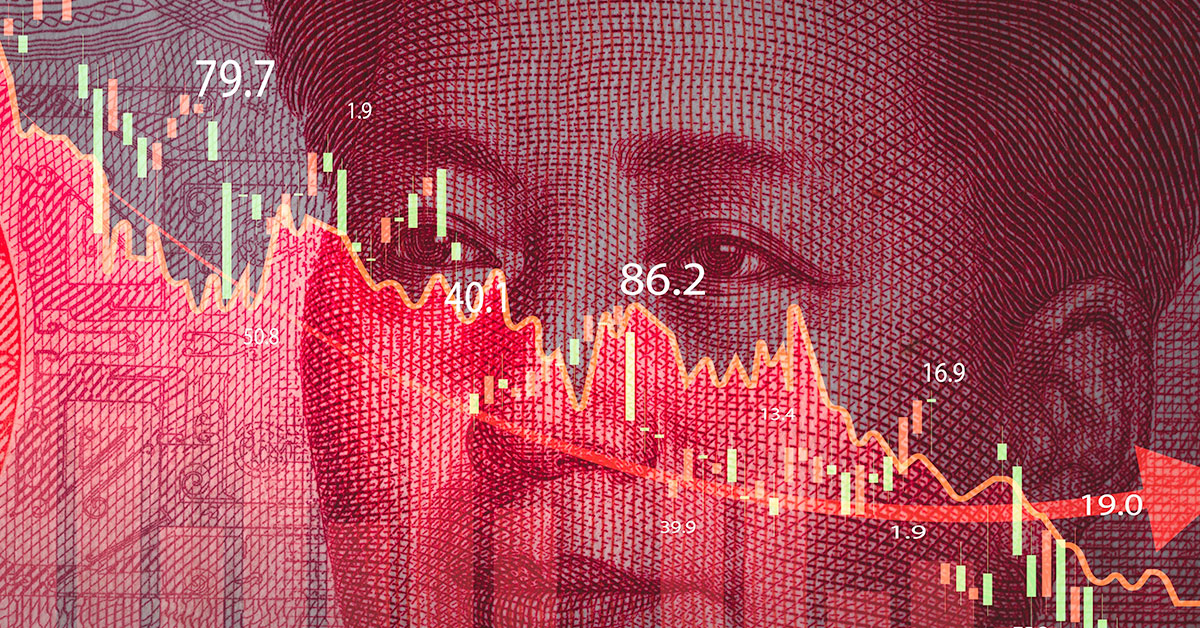
China’s economy has been through some significant changes in the last few years and in 2024 there have been some serious concerns as to whether it will collapse or not.
The economy of China has a GDP of approximately $18.53 trillion as of 2024, with the projected GDP of 2029 to reach $24.84 trillion.
In this article, we will be explaining the strength of the Chinese economy, as well as some of the reasons why an economic slump could be on the horizon.
Existing strengths of China’s economy
China is the second-largest economy in the world behind the US. Despite parts of the economy being state-run, China has a significant private sector which allows the country to thrive economically. Its mixed economy benefits from both state control in key sectors and market-driven growth in private sectors.
The strength of the economy can be identified as coming from several key areas.
Manufacturing power
China’s manufacturing power is the root of the country’s economic status. China makes up 31.63% of the world’s manufacturing output – double that of the US which is in second place at 15.87%.
Being a world leader in manufacturing means that China has attracted a substantial amount of foreign investment, which has further boosted its output.
Large workforce & domestic market
Underpinning this manufacturing dominance is a population of 1.4 billion people. This not only provides a huge workforce, at a relatively cheap cost, but means there is a huge domestic market with a large demand for goods and services.
This in turn encourages innovation and competition within the country, as well as further investment.
Technology
China has also made huge advancements in technology, most notably with telecoms, e-commerce and AI. Alibaba, Huawei and Tencent are all global leaders in tech innovation. China has also entered the electronic vehicle (EV) sector, with several companies such as BYD, Nio and Li Auto entering the scene as rivals to Tesla.
The Chinese government is supportive of technological advancement and urbanisation and has reinvested huge amounts of capital back into the system to grow cities and technology sectors.

Why might China’s economy collapse?
Despite China’s status as an economic powerhouse, there have been serious concerns about where it is heading. Many economists have noted the alarming levels of debt combined with tensions with the US.
Here are some of the main causes of concern.
Evergrande & the property market
Evergrande has been the thread pull of China’s property sector. Evergrande was a Chinese property developer founded in 1996, and at its peak, was the second-largest property company in China. In 2018, the company was noted as the most valuable real estate company in the world.
However, in 2021, the company announced that it had defaulted on some of its loans, which were stacking up to over $300 billion. In 2023, the company filed for bankruptcy in the US, and in January 2024, the company was ordered in court in Hong Kong to liquidate.
Hui Ka Yan, the company’s chairman of the board, was banned from the markets in China for life and fined $6.5 million for overstating the company’s revenue by $78 billion.
Effects of potential collapse
Evergrande has not yet technically collapsed, and the official record is that it is working on repaying its $300 billion of liabilities and its liquidation. However, many are sceptical that this can ever be achieved.
There is a huge risk that if Evergrande fully fails, as will many other companies that are tied up in Evergrande’s liabilities. Furthermore, many people purchased property from Evergrande before the properties were built, meaning that if Evergrande collapsed, their money would be gone.
The impact of this collapse on China’s entire financial system could be disastrous to the entire country, which means that China’s government will likely step in to keep the company going and paying its debts, positing Evergrande as ‘too big to fail’.
However, the effects may already be in motion, as China’s entire property sector is now crumbling. According to a survey by Reuters, 100 real estate enterprises saw their value drop by a third in 2023 and construction of new properties has fallen by 60%.
Debt levels
Aside from the property sector, China’s rising debt levels are concerning. The debt-to-GDP ratio reached 287.8% in 2023, with national debt also on the rise.
While a country such as Japan has more debt on paper, the skyrocketing rate of debt in China is the real concern, and many economists have noted that the pace of rising debt would have resulted in a crash in most cases.
China’s economy has been financed by what many have noted is an inefficient banking system. The failure of Evergrande is significant, as the growth of China has been based primarily on investment in real estate. Therefore, Evergrande for many is a representation of China’s economy as a whole.

Is China’s economy going to collapse?
China’s economy is currently in a slump, but despite the glaring concerns, the economy shows no signs of imminent collapse. As stated, many economists have pointed out that the meteoric rise in debt would have toppled most economies, but the Chinese economy remains relatively steady. All eyes are on 2024, and the outcome of the Evergrande case.
It is also important to remember that the US economy is also under similar scrutiny, with many economists and traders wondering whether the US dollar will collapse. The issues raised are similar to China’s – an overwhelming amount of debt which seems impossible to repay.
Yet the economic dominance of both the US and China seems to suggest that the countries themselves are too big to fail.
For more currency and economics articles, stay posted on our weekly articles at CurrencyTransfer in our Expert Analysis section. We also post daily updates on the market with our Market Commentary.
Sign up for an account with CurrencyTransfer today for free, and you’ll be assigned an account manager who will help you every step of the way.
Caleb Hinton
Caleb is a writer specialising in financial copy. He has a background in copywriting, banking, digital wallets, and SEO – and enjoys writing in his spare time too, as well as language learning, chess and investing.



